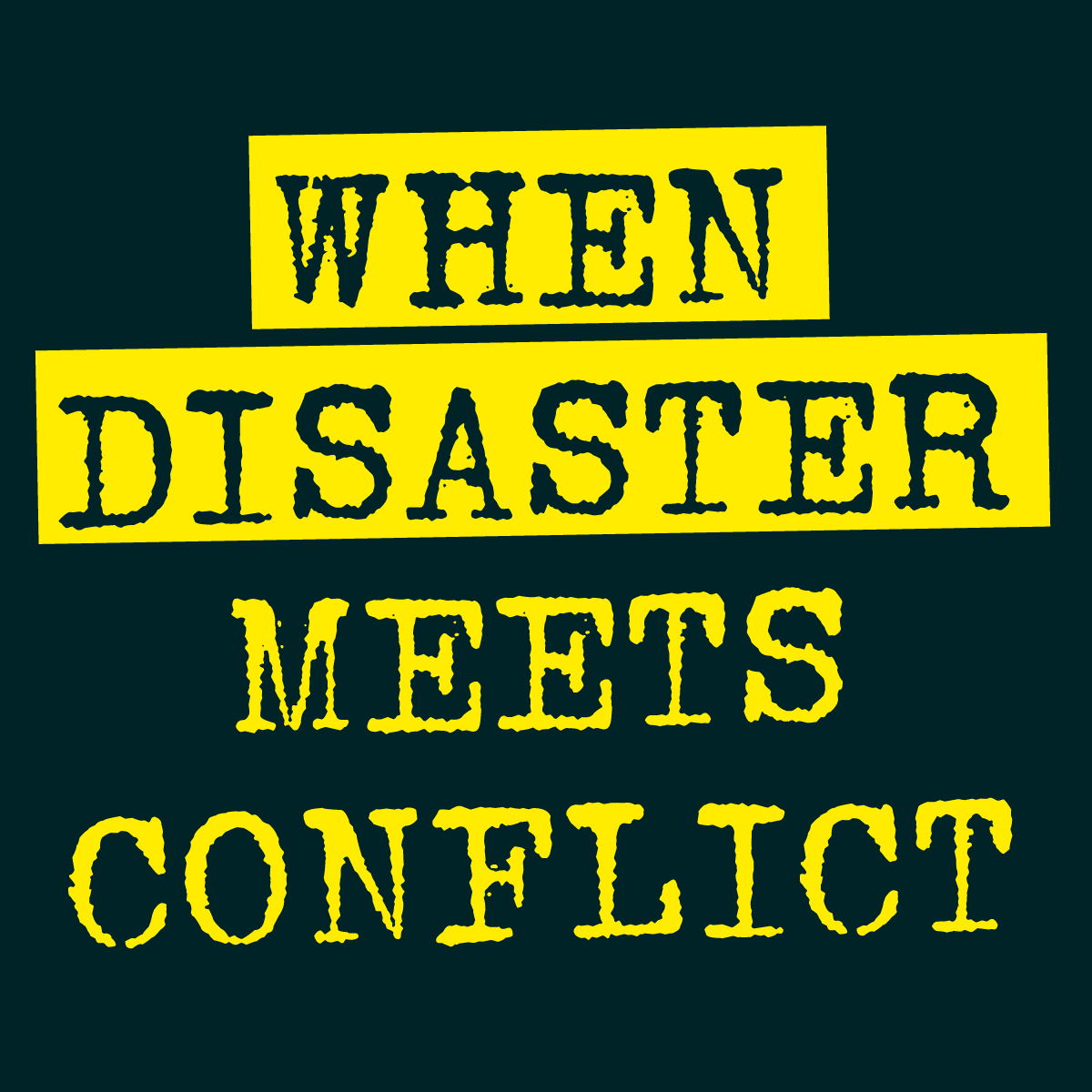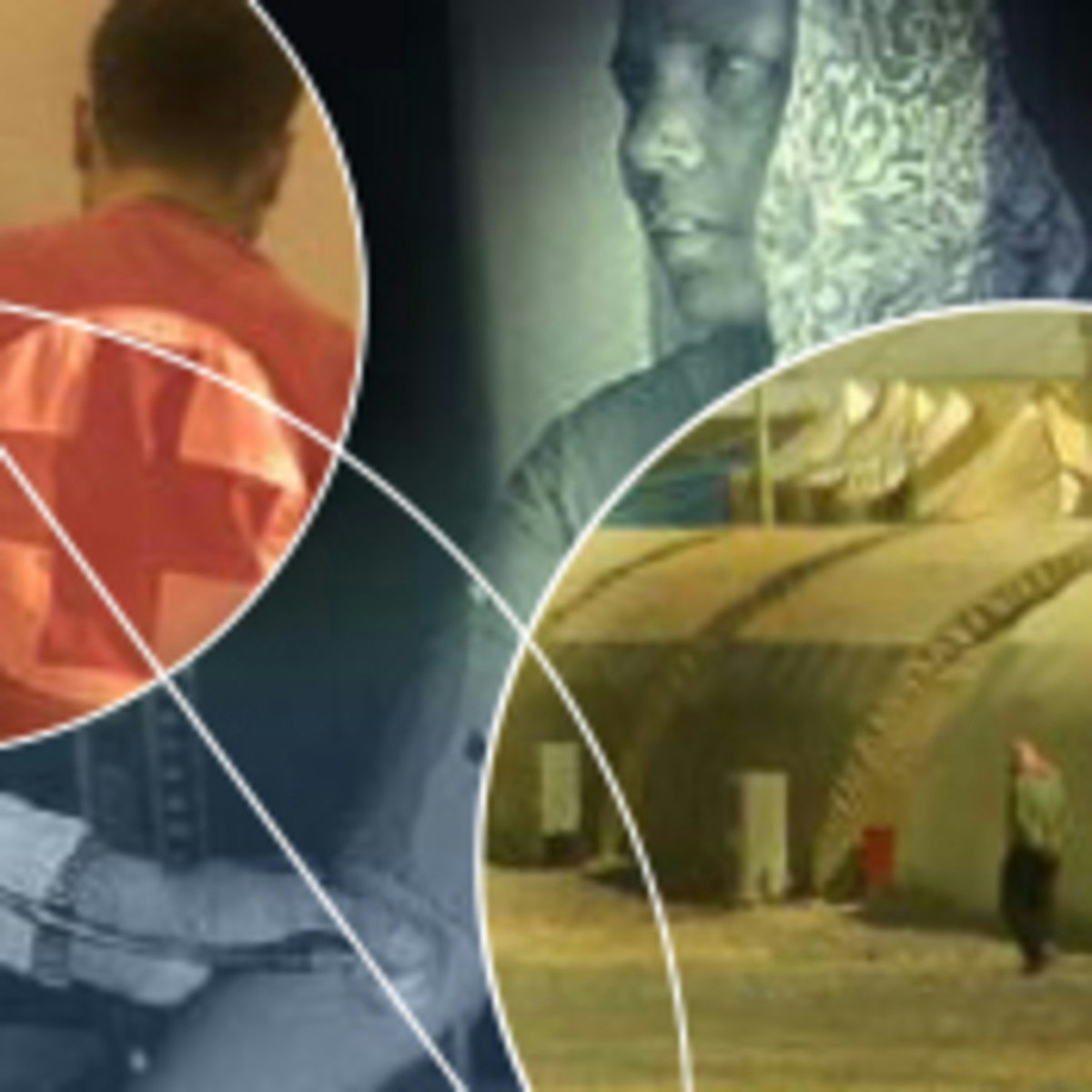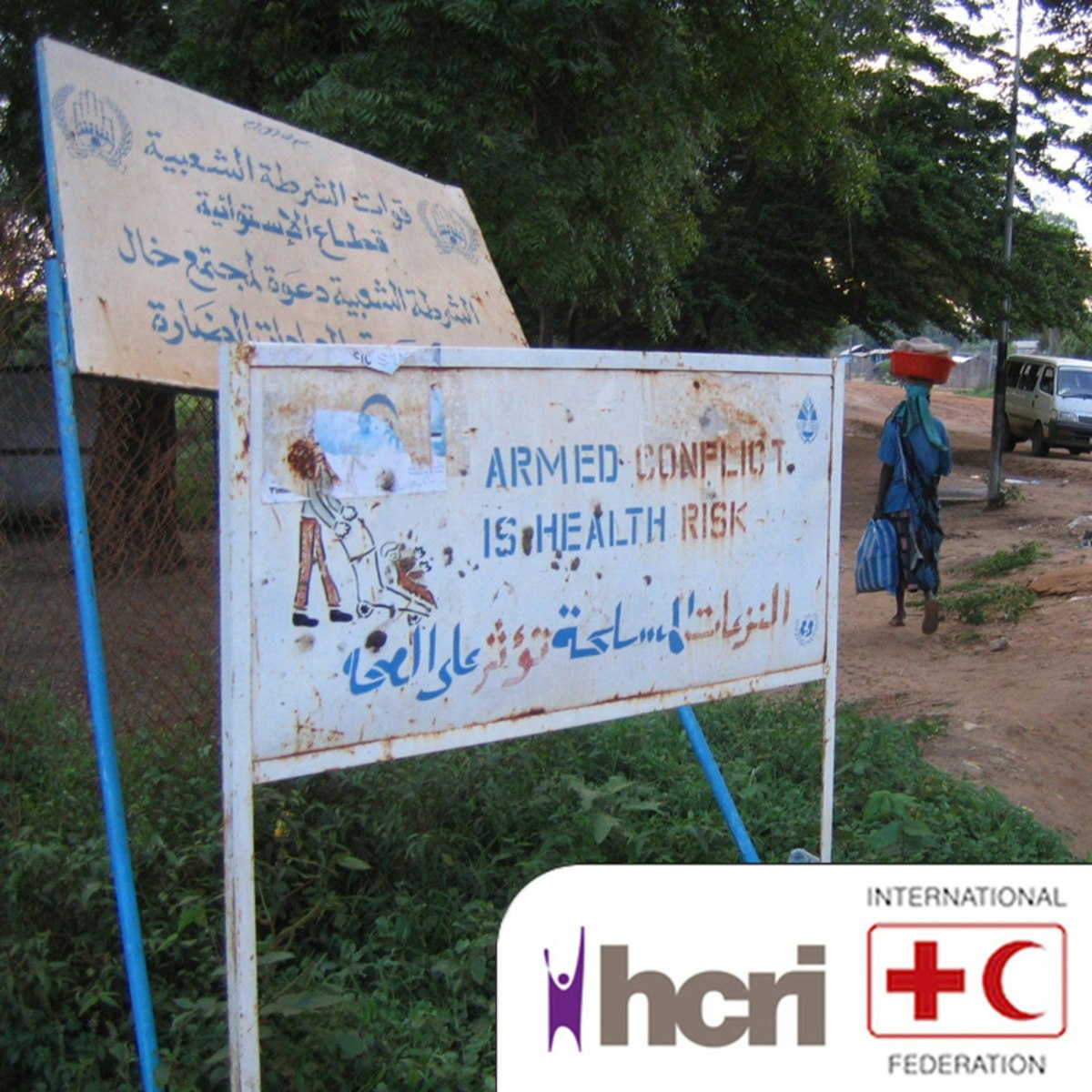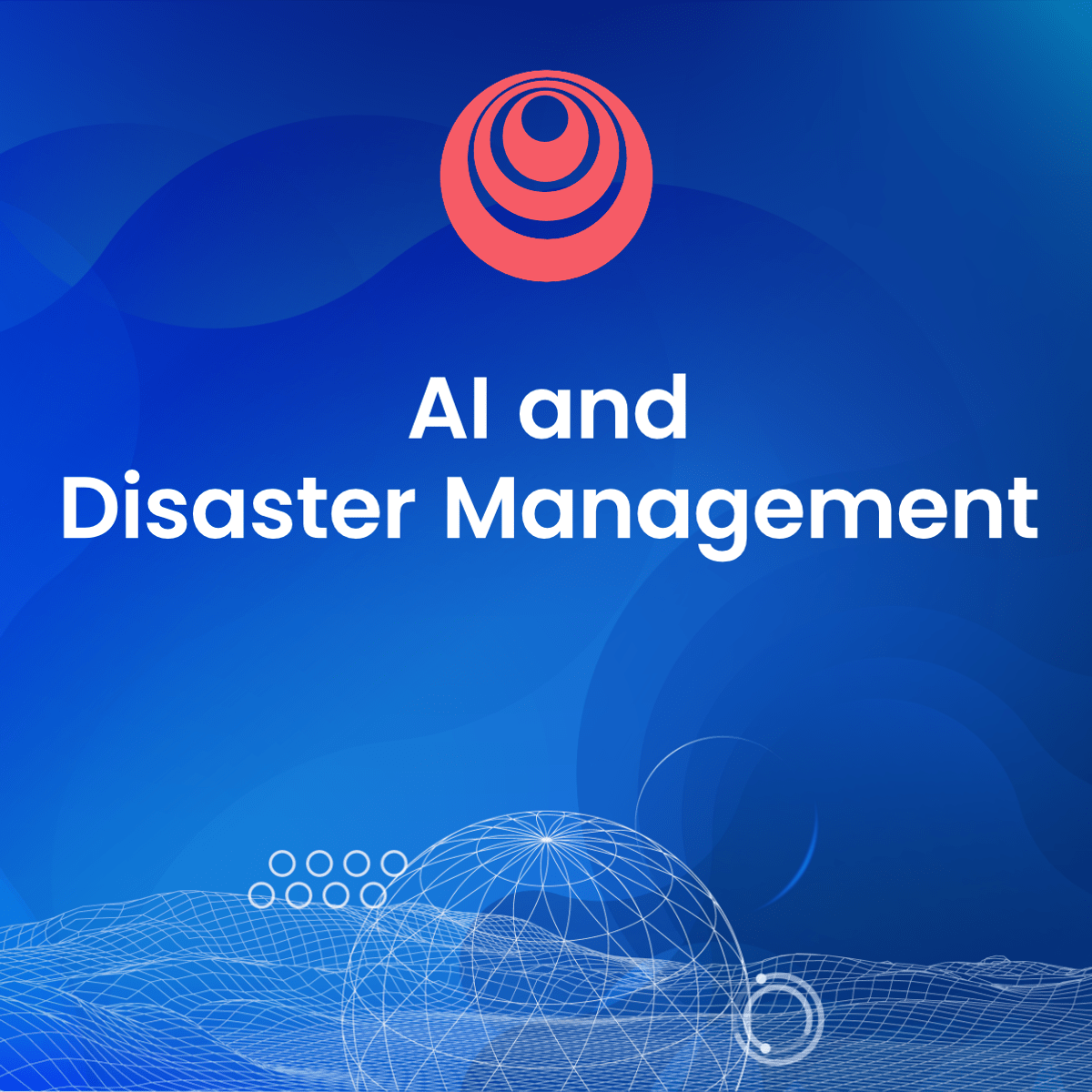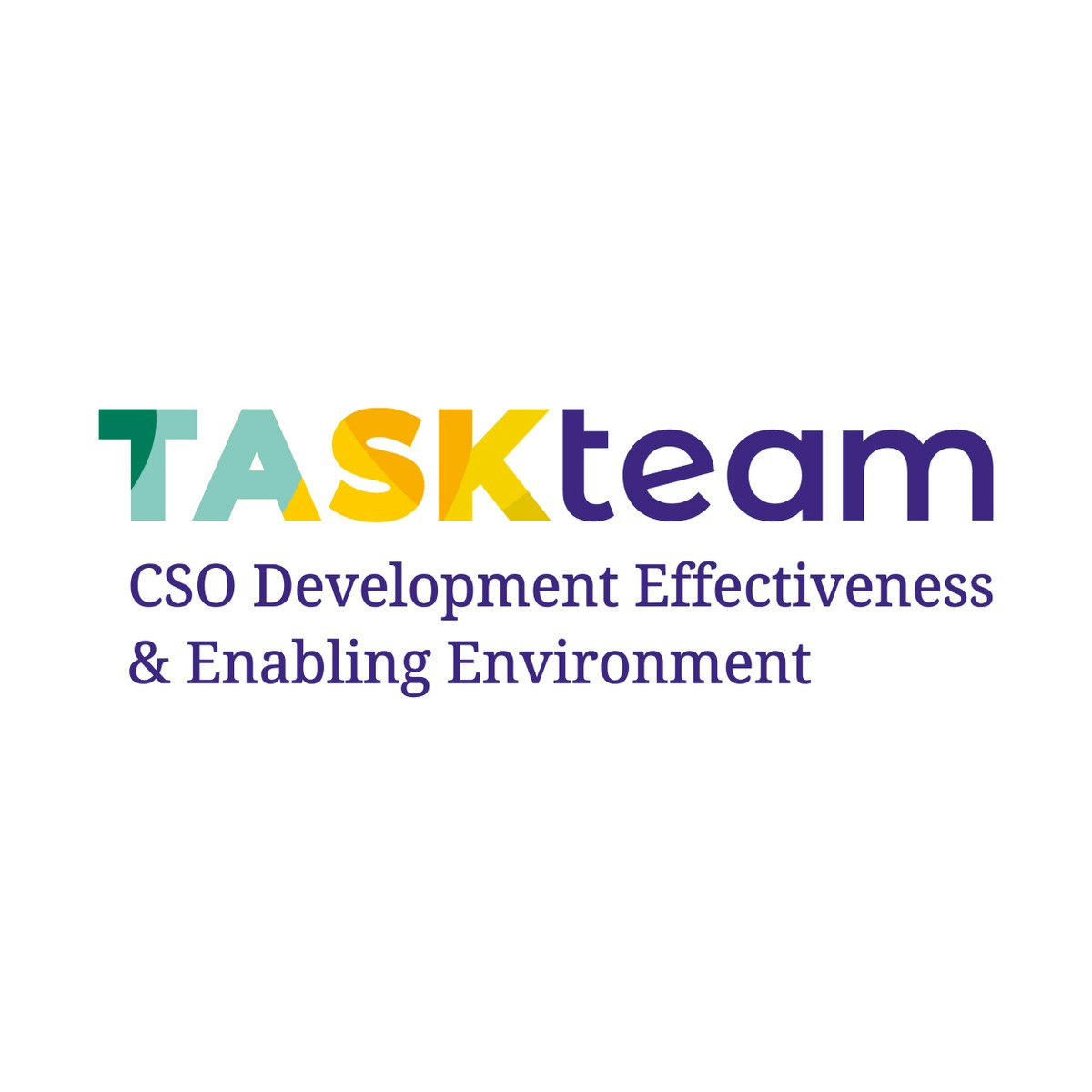Humanitarian Aid Worker
Humanitarian Aid Worker: A Comprehensive Career Guide
Humanitarian aid work involves providing assistance to people affected by crises, such as natural disasters, armed conflicts, famines, or widespread disease. It's a field dedicated to saving lives, alleviating suffering, and maintaining human dignity during and after emergencies. Workers operate globally, responding to immediate needs and contributing to longer-term recovery and development efforts.
This career path often appeals to individuals driven by a strong desire to make a tangible difference in the world. Engaging aspects include the opportunity to work directly with diverse communities, tackle complex global challenges, and witness the direct impact of relief efforts. It demands resilience, adaptability, and a deep commitment to humanitarian principles.
Understanding Humanitarian Aid Work
Defining the Field and Its Purpose
Humanitarian aid is assistance provided for humanitarian purposes, typically in response to humanitarian crises. The primary objective is to save lives, alleviate suffering, and maintain human dignity. This assistance is intended to be governed by humanitarian principles, including humanity, neutrality, impartiality, and independence.
The scope is vast, ranging from immediate emergency response like providing food, water, shelter, and medical care, to longer-term development support aimed at rebuilding communities and strengthening resilience. It addresses the consequences of natural disasters, armed conflicts, epidemics, and other large-scale emergencies that overwhelm local capacities.
Humanitarian action operates across various sectors. Key areas include disaster relief coordination, emergency healthcare services, setting up temporary education facilities, managing camps for displaced populations, ensuring access to clean water and sanitation (WASH), and protecting vulnerable groups like children and refugees.
Core Objectives: Response, Development, and Advocacy
The most visible objective is immediate crisis response. This involves deploying personnel and resources rapidly to affected areas to meet urgent survival needs. Think of emergency medical teams arriving after an earthquake or food distributions during a famine. Speed and efficiency are critical in this phase.
Beyond immediate relief, humanitarian work often links with development efforts. This means helping communities recover and rebuild in ways that reduce future vulnerability. Examples include constructing earthquake-resistant schools, implementing sustainable agriculture projects, or establishing local health clinics.
Advocacy is another crucial component. Humanitarian organizations often speak out on behalf of affected populations, raising awareness about crises, promoting respect for international humanitarian law, and influencing policy decisions related to aid funding, access, and protection of civilians.
Key Sectors of Intervention
Disaster relief involves coordinating the response to sudden-onset disasters like floods, hurricanes, or earthquakes. This includes damage assessment, search and rescue, and managing the distribution of essential supplies like food, water, and shelter materials.
Healthcare in humanitarian settings ranges from emergency trauma care and outbreak control (like cholera or Ebola) to providing basic primary health services, maternal and child health support, and mental health services in refugee camps or crisis zones.
Education is vital, especially for children affected by crises. Humanitarian efforts focus on establishing safe learning spaces, providing educational materials, training teachers, and ensuring continuity of learning, even in emergency contexts, to provide stability and hope.
Displacement management addresses the needs of refugees and internally displaced persons (IDPs). This includes setting up and managing camps, providing protection services, facilitating registration and documentation, and seeking long-term solutions like resettlement or safe return.
These courses provide insight into specific challenges and responses within the humanitarian sector, covering areas like conflict, disaster, and health.
What Does a Humanitarian Aid Worker Do?
Field Operations and Direct Assistance
A significant part of the job often involves direct field operations. This could mean conducting needs assessments in affected communities to understand priorities, distributing food aid or non-food items like blankets and hygiene kits, or setting up temporary shelters.
Field staff work closely with local populations, requiring strong interpersonal skills and cultural sensitivity. They might manage distribution points, oversee logistics for aid delivery, or monitor the effectiveness of programs on the ground.
The nature of these tasks varies greatly depending on the crisis, the organization, and the specific role. It often involves working in challenging and sometimes insecure environments, demanding adaptability and resilience.
Coordination and Partnership
Humanitarian responses are rarely carried out by a single entity. Aid workers must coordinate effectively with various actors, including international and local non-governmental organizations (NGOs), United Nations agencies, and government authorities.
This coordination ensures that efforts are not duplicated, gaps in assistance are filled, and resources are used efficiently. It involves attending cluster meetings (sector-specific coordination groups), sharing information, and collaborating on joint projects or assessments.
Building strong relationships with local partners and authorities is crucial for gaining access to affected populations, ensuring the safety of staff, and promoting sustainable, locally-led responses.
Cultural Sensitivity and Community Engagement
Effective humanitarian work requires deep respect for the cultures and customs of the communities being served. Aid workers must strive to understand local contexts, power dynamics, and social structures to ensure that aid is delivered appropriately and equitably.
Engaging the community in the design, implementation, and monitoring of aid programs is essential. This participatory approach helps ensure that assistance meets actual needs, respects local priorities, and empowers communities rather than creating dependency.
Cross-cultural communication skills are vital. Misunderstandings can undermine trust and hinder the effectiveness of aid efforts. Learning basic phrases in the local language can also be incredibly beneficial.
This course focuses on understanding and navigating intercultural dimensions, a key skill for community engagement.
Documentation, Reporting, and Accountability
Documenting activities, monitoring progress, and reporting findings are essential aspects of humanitarian work. This provides accountability to both the communities served (beneficiaries) and the donors funding the programs.
Reports often detail activities undertaken, challenges faced, results achieved, and lessons learned. This information is crucial for program management, evaluating impact, securing future funding, and improving future responses.
Data collection might involve surveys, interviews, or focus group discussions. Accuracy and ethical considerations in data handling are paramount, particularly when dealing with sensitive information about vulnerable individuals.
This book provides foundational standards for humanitarian response, emphasizing accountability.
Building Your Foundation: Education and Training
Relevant Academic Backgrounds
While there's no single prescribed degree, certain fields provide a strong foundation. Undergraduate degrees in International Relations, Political Science, Public Health, Development Studies, Anthropology, or Sociology are common starting points.
These programs often cover global issues, cross-cultural dynamics, research methods, and the political and economic contexts in which humanitarian crises occur. Coursework in geography or environmental science can also be relevant, especially for disaster risk reduction.
However, practical experience is highly valued. Many successful aid workers come from diverse backgrounds like logistics, engineering, medicine, education, or social work, supplementing their expertise with humanitarian-specific knowledge.
Specialized Graduate Studies and Certifications
Many professionals pursue Master's degrees specializing in Humanitarian Action, International Development, Public Health (with a global or emergency focus), or related fields. These programs offer deeper theoretical knowledge and specialized skills.
Beyond degrees, specific certifications are highly regarded. Hostile Environment Awareness Training (HEAT) is often required for working in insecure contexts. Certifications related to the Sphere Standards (minimum standards in humanitarian response) are also valuable.
Other relevant training might cover project management (like PMD Pro - Project Management for Development Professionals), logistics and supply chain management, monitoring and evaluation, or specific technical areas like Water, Sanitation, and Hygiene (WASH) promotion.
These courses delve into operational research and specific humanitarian contexts, useful for specialized knowledge.
The Crucial Role of Language Skills
Proficiency in languages other than your native tongue is often a significant advantage, and sometimes a requirement, for field positions. English and French are common working languages in many international organizations.
Depending on the region of operation, languages like Spanish, Arabic, Swahili, Portuguese, or Russian can be highly valuable. Even basic proficiency can greatly enhance communication with local communities and partners.
Language acquisition takes time and dedication. Consider incorporating language learning into your educational path through formal courses, online platforms like OpenCourser, language exchange partners, or immersion experiences if possible.
Consider these courses for language learning relevant to various humanitarian contexts.
Navigating Your Humanitarian Career Path
Starting Out: Entry-Level Opportunities
Breaking into the humanitarian sector can be competitive. Entry-level roles often include positions like Field Officer, Project Assistant, Logistician Assistant, or Program Support Officer. Internships and volunteer positions are common pathways to gain initial experience.
These roles typically involve supporting senior staff, assisting with logistics, collecting data, helping with distributions, and learning the operational aspects of aid work. They provide invaluable exposure to the realities of the field.
Focus on gaining practical skills, demonstrating adaptability, and building your network. Experience in challenging environments, even domestically (e.g., volunteering with local disaster response or community organizations), can be beneficial.
Developing Expertise: Mid-Career Specialization
As you gain experience, opportunities for specialization arise. Aid workers often focus on specific technical sectors based on their background and interests. Common specializations include Water, Sanitation, and Hygiene (WASH), Food Security and Livelihoods, Health, Protection (addressing the safety and rights of vulnerable groups), Shelter, or Education in Emergencies.
Other mid-career roles might focus on program management, monitoring and evaluation (M&E), coordination, or advocacy. Developing expertise in a specific area increases your value and opens doors to more senior technical or managerial positions.
Continuous learning through professional development courses, workshops, and staying updated on best practices within your chosen sector is crucial for career growth.
Leadership and Strategic Roles
With significant experience and demonstrated leadership capabilities, aid workers can progress to senior management and strategic positions. These include roles like Program Coordinator, Country Director, Regional Advisor, or Head of Mission.
These positions involve overseeing multiple projects or entire country programs, managing large teams and budgets, representing the organization externally, engaging in strategic planning, and liaising with donors and high-level government officials.
Policy advisor roles involve shaping organizational strategies or influencing international humanitarian policy based on field evidence and analysis. These roles often require advanced degrees and extensive field experience.
Transitions and Related Fields
Skills gained in humanitarian aid are transferable to various related fields. Experienced aid workers may transition into roles within international development organizations, foundations, government foreign aid agencies, academia (teaching or research), or consultancy.
Some may leverage their expertise in logistics, management, or specific technical areas to work in the private sector or start their own social enterprises. Others might focus on advocacy or policy work within think tanks or non-profit organizations based in their home country.
The ability to manage complex projects, work cross-culturally, operate under pressure, and solve problems creatively are valuable assets in many professional contexts.
The Realities of Fieldwork: A Day in the Life
Work Environments: From Offices to Austere Settings
The daily environment of a humanitarian aid worker varies dramatically. Some roles are primarily office-based, focusing on program management, coordination, reporting, or logistics planning, often in capital cities or regional hubs.
Many roles, however, involve significant time in the field. This could mean working in remote villages, bustling refugee camps, areas recovering from natural disasters, or even active conflict zones. Field conditions can be basic, lacking reliable electricity, internet, or comfortable amenities.
Adaptability is key. One day might involve meetings in an air-conditioned office, while the next could be spent assessing needs in a flood-affected community accessible only by boat, facing unpredictable weather and security situations.
This course helps prepare individuals for the practicalities and wellness aspects of international work.
Balancing Desk Work and Direct Engagement
Most roles involve a mix of administrative tasks and direct fieldwork or community interaction. Field staff might spend mornings visiting project sites or meeting community leaders, and afternoons writing reports, analyzing data, or planning upcoming activities.
Desk-based staff also typically have field connections, perhaps traveling periodically to monitor projects or support field teams. The balance depends heavily on the specific role and the phase of the humanitarian response (emergency vs. recovery).
Time management and organizational skills are essential to juggle competing demands, from urgent operational needs to donor reporting deadlines and team coordination meetings.
Team Dynamics and High-Stakes Decisions
Humanitarian work is inherently collaborative. Aid workers operate in diverse teams, often comprising international and national staff with varied backgrounds and expertise. Effective teamwork, communication, and conflict resolution skills are vital.
Decision-making often occurs under pressure, with incomplete information and significant consequences. Field teams might need to quickly decide how to allocate limited resources, adapt programs based on changing security situations, or respond to unexpected challenges.
Leadership, even informal, involves fostering a positive team environment, supporting colleagues facing stress, and ensuring decisions align with humanitarian principles and organizational mandates.
Navigating Ethical Considerations
The Neutrality vs. Advocacy Tightrope
Humanitarian principles call for neutrality and impartiality – providing aid based on need alone, without taking sides in conflicts or discriminating. However, witnessing human rights abuses or systemic injustices can create pressure to advocate for change or speak out against perpetrators.
Balancing neutrality, which is often crucial for maintaining access to affected populations, with the moral imperative to advocate for justice is a constant ethical challenge. Actions perceived as biased can jeopardize staff safety and program delivery.
Organizations navigate this differently, with some focusing strictly on neutral aid delivery while others incorporate strong advocacy mandates. Individual workers must grapple with these tensions within their organizational context.
Power Dynamics and Aid Distribution
Aid inherently involves power dynamics between those providing assistance (often external actors with resources) and those receiving it (communities in crisis). There's a risk that aid processes can reinforce existing inequalities or create new dependencies.
Ensuring aid is distributed equitably and doesn't inadvertently cause harm (the "Do No Harm" principle) requires careful analysis of the local context, including social structures, potential conflicts, and vulnerabilities. Decisions about who receives aid, what kind, and how it's delivered have profound ethical implications.
Engaging communities meaningfully in decision-making processes and establishing clear, accessible feedback mechanisms are crucial steps towards mitigating negative power dynamics and promoting local ownership.
These courses touch upon ethical considerations in various contexts, including labor, humanitarian law, and peace education.
Accountability: Beneficiaries vs. Donors
Humanitarian organizations face dual accountability: upwards to donors who provide funding, and downwards to the beneficiaries (affected communities) they aim to serve. These accountabilities can sometimes conflict.
Donor requirements often focus on quantifiable results, financial reporting, and compliance, which can shape program design and priorities. Accountability to beneficiaries emphasizes meeting actual needs effectively, respectfully, and ensuring participation and feedback.
Striving for greater accountability to affected populations is a key focus in the sector, involving improved communication, complaints mechanisms, and community participation in program monitoring and evaluation.
This book provides a framework often used to promote accountability and quality in humanitarian response.
The Toll on Workers: Mental Health and Burnout
Exposure to trauma, high-stress environments, long working hours, separation from family, and the moral weight of the work can take a significant toll on the mental health and well-being of aid workers. Burnout, compassion fatigue, anxiety, depression, and PTSD are recognized risks.
Organizations increasingly recognize the need for better staff care policies, including access to psychosocial support, stress management training, reasonable work schedules, and adequate rest and recuperation leave.
Individuals must also prioritize self-care, build strong support networks, and recognize their own limits. Seeking help when needed is a sign of strength, not weakness, in this demanding field.
Developing Essential Skills for Aid Work
Technical Proficiencies: Logistics, Health, and More
Depending on the role, specific technical skills are essential. Logisticians need expertise in supply chain management, procurement, warehousing, and transport. Health professionals require clinical skills relevant to emergency or primary care in low-resource settings.
Engineers might need skills in constructing emergency shelters or water systems. Project managers need skills in planning, budgeting, and monitoring. Basic first aid knowledge is valuable for almost anyone working in the field.
Online courses can be an excellent way to build foundational knowledge or acquire specialized technical skills before entering the field or as part of ongoing professional development. OpenCourser's extensive catalog allows you to browse courses across various technical domains relevant to humanitarian work.
These books cover logistics and health aspects relevant to humanitarian operations.
Soft Skills: The Human Element
Technical skills alone are insufficient. Soft skills are equally, if not more, critical. Strong cross-cultural communication abilities are paramount for working effectively with diverse teams and communities.
Adaptability and flexibility are essential for navigating unpredictable and rapidly changing situations. Resilience helps workers cope with stress and challenging conditions. Problem-solving skills are needed daily to overcome operational hurdles.
Empathy, patience, and diplomacy are vital for building trust and rapport. Teamwork and leadership skills contribute to effective collaboration and achieving common goals in high-pressure environments.
This course focuses on developing cross-cultural communication skills.
Leveraging Digital Tools
Technology plays an increasing role in humanitarian aid. Familiarity with digital tools for communication (like satellite phones or secure messaging apps), data collection (mobile data collection platforms like KoboToolbox or ODK), and analysis is becoming increasingly important.
Geographic Information Systems (GIS) and crisis mapping tools help visualize situations and plan responses. Data analysis software helps make sense of assessment data to inform programming. Understanding data privacy and security principles is also critical.
Online courses offer accessible ways to learn about these digital tools and data science applications relevant to the humanitarian sector.
These courses explore the intersection of technology, data, and humanitarian action.
Simulation and Practical Training
Classroom learning provides theory, but practical training is crucial for preparedness. Simulation exercises allow aid workers to practice skills and decision-making in realistic, albeit safe, scenarios.
HEAT courses often involve intense simulations of security incidents like ambushes or kidnappings. Other simulations might focus on setting up emergency distribution points, managing a simulated disease outbreak, or coordinating a disaster response.
First aid and trauma care courses emphasize hands-on practice. While simulations cannot fully replicate field realities, they are invaluable for building muscle memory, testing procedures, and improving team coordination under pressure.
Measuring Success: Impact in Humanitarian Careers
Defining and Quantifying Outcomes
Measuring the impact of humanitarian aid is complex. Short-term outcomes, like the number of people receiving food aid or vaccinated against measles, are easier to quantify. Assessing longer-term impacts, such as improved community resilience or sustained recovery, is more challenging.
Organizations use monitoring and evaluation (M&E) frameworks to track progress against objectives. This involves collecting both quantitative data (numbers, statistics) and qualitative data (stories, perceptions, case studies) to understand the effects of interventions.
Defining meaningful indicators and collecting reliable data in chaotic post-crisis environments requires specialized skills and careful methodological choices.
Donor Reporting and Frameworks
Donors, including governments, international bodies, and private foundations, require regular reports on how their funds are used and what results are achieved. Specific reporting formats and frameworks (like logical frameworks or results frameworks) are often mandated.
Meeting donor reporting requirements is a significant aspect of program management. It requires meticulous record-keeping, data analysis, and clear communication of progress, challenges, and expenditures.
Balancing donor demands with the need for flexible, adaptive programming responsive to community needs is an ongoing challenge in the sector.
Funding Trends and Allocation
The landscape of humanitarian funding is constantly evolving. Trends include shifts towards multi-year funding, increased emphasis on cash-based assistance, greater investment in disaster risk reduction, and debates around the localization of aid (channeling more funds directly to local organizations).
Understanding funding trends helps organizations position themselves strategically and design programs aligned with donor priorities. Competition for funding is often intense, requiring strong proposal writing and relationship management skills.
Market trends also influence where funding is allocated, often prioritizing large-scale, high-visibility crises over smaller or protracted emergencies.
Innovations in Impact Tracking
Technology offers new ways to track impact. Mobile data collection streamlines surveys. Satellite imagery and remote sensing help monitor environmental changes or assess disaster damage. Data analytics can identify trends and patterns in beneficiary needs or program effectiveness.
Blockchain technology is being explored for transparent cash transfers. Biometrics are sometimes used for beneficiary registration, though ethical considerations are significant. These innovations aim to improve the efficiency, transparency, and effectiveness of aid delivery and monitoring.
Staying abreast of technological advancements and understanding their potential applications (and limitations) in humanitarian contexts is increasingly important for M&E professionals and program managers.
The Evolving Landscape of Humanitarian Aid
Adapting to Climate Change
Climate change is increasingly recognized as a major driver of humanitarian crises. More frequent and intense extreme weather events (droughts, floods, storms) displace populations, destroy livelihoods, and exacerbate resource scarcity and conflict.
The humanitarian sector must adapt by integrating climate change considerations into programming. This includes strengthening early warning systems, promoting climate-resilient agriculture and infrastructure, and managing climate-induced displacement.
Workers need an understanding of climate science and adaptation strategies to effectively respond to these growing challenges. You can explore relevant courses on Climate Science and Environmental Sciences.
The Role of AI and Machine Learning
Artificial intelligence (AI) and machine learning (ML) are emerging tools with potential applications in humanitarian aid. These include predictive analytics for anticipating disease outbreaks or famine risk, optimizing logistics routes, analyzing satellite imagery for damage assessment, and processing large volumes of text data from needs assessments.
While promising, the use of AI/ML also raises ethical questions regarding data privacy, algorithmic bias, and accountability. Responsible development and deployment require careful consideration and specific expertise.
Understanding the basics of these technologies can be beneficial for future-focused aid workers. Consider exploring introductory courses in Artificial Intelligence.
Localization vs. Internationalization
A major ongoing debate concerns the "localization" of aid – shifting power and resources from international organizations to local and national actors (NGOs, civil society groups, local governments) in affected countries.
Proponents argue localization leads to more contextually appropriate, sustainable, and empowering responses. Challenges include capacity constraints of some local actors, navigating complex local politics, and ensuring accountability standards are met.
This trend impacts the roles and structures of international NGOs and the skills required of international aid workers, emphasizing partnership, capacity building, and advisory functions over direct implementation.
This course explores the role of civil society, often central to localization debates.
Career Stability in a Volatile World
Humanitarian work often involves short-term contracts tied to specific crises or funding cycles, which can lead to career instability. The demanding nature of the work and challenging environments also contribute to staff turnover.
While the need for humanitarian assistance is likely to persist, the nature of the work and the structure of organizations may continue to evolve. Building a diverse skill set, networking effectively, and being adaptable are important for long-term career sustainability.
Despite the challenges, the field offers deeply rewarding opportunities for those committed to its principles. Organizations like the World Bank and various UN agencies often provide insights into global development and crisis trends affecting the sector.
Frequently Asked Questions (FAQs)
What are typical salary expectations?
Salaries vary significantly based on the organization (UN, large INGO, local NGO), location (headquarters vs. field, high-risk area), experience level, and role. Entry-level field positions might offer modest salaries, sometimes supplemented by hardship allowances in difficult postings.
Mid-career and senior management roles, particularly with UN agencies or major international NGOs, can offer competitive salaries comparable to other professional fields. However, compensation is rarely the primary motivator for entering this sector. Research specific organizations and roles on platforms like ReliefWeb or organizational career pages for more precise data.
What are the first steps to enter the field?
Gaining relevant experience is key. Start by volunteering with local community organizations, disaster response groups, or refugee support networks. Pursue relevant education (e.g., international relations, public health). Develop practical skills like first aid, project support, or languages.
Look for internships or entry-level positions with humanitarian or development organizations. Networking is crucial; attend relevant events or webinars and connect with people working in the field. Be persistent and tailor your applications to highlight transferable skills and demonstrated commitment.
How are safety risks managed in dangerous areas?
Reputable organizations invest heavily in security management. This includes pre-deployment safety training (like HEAT), security protocols for movement and communication, context analysis, security briefings, contingency planning, and sometimes protective equipment or security escorts.
Acceptance by the local community, based on adherence to humanitarian principles like neutrality and impartiality, is often the best form of security. However, risks remain inherent in many operational contexts, and individuals must be aware of and adhere strictly to safety procedures.
This book offers insights into conflict dynamics, relevant to understanding risks.
Can skills from the corporate world transfer?
Yes, many skills are highly transferable. Expertise in logistics, supply chain management, finance, human resources, IT, communications, and project management are valuable in humanitarian operations. Leadership, teamwork, and problem-solving skills developed in any sector are also relevant.
The key is understanding how to adapt these skills to the unique context of humanitarian work, which often involves resource constraints, complex operating environments, and a focus on ethical principles and accountability to affected populations rather than profit margins.
How do aid workers balance fieldwork and family life?
Balancing demanding fieldwork with family life is a significant challenge. Field assignments often involve long periods away from home, sometimes in non-family duty stations. This requires understanding and support from partners and families.
Some organizations offer R&R (Rest and Recuperation) breaks during long deployments. Many roles are headquarters-based or involve shorter field trips. Choosing roles or organizations that better align with personal circumstances becomes more important as careers progress or family situations change.
Are there specific physical fitness requirements?
While not typically requiring elite athletic ability, field-based humanitarian work can be physically demanding. It may involve long hours, travel over difficult terrain, exposure to harsh climates, and basic living conditions. Good general health and a reasonable level of fitness are important for coping with these demands.
Specific health requirements or vaccinations may be necessary depending on the deployment location. Mental and emotional resilience are arguably even more critical than peak physical fitness for sustaining a career in this field.
Embarking on a career as a humanitarian aid worker is a significant commitment, filled with both immense challenges and profound rewards. It requires continuous learning, adaptation, and a steadfast dedication to alleviating suffering and upholding human dignity. Resources like OpenCourser can help you build the necessary skills and knowledge through its vast library of online courses and books. We encourage you to explore this path with open eyes, realistic expectations, and a commitment to making a positive impact.

